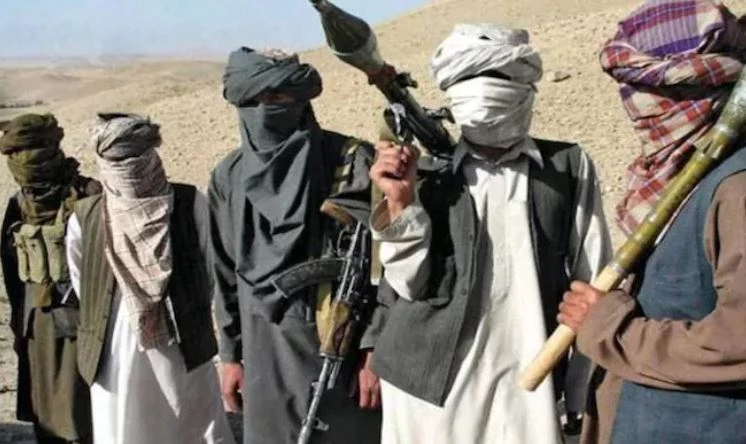TTP eyeing merger with Al Qaeda to expand reach: says UN report

Stay tuned with 24 News HD Android App

After the return of Afghan Taliban, the Tehreek-e-Taliban Pakistan (TTP) are reportedly eyeing a merger with Al Qaeda to form a larger entity shielding all insurgent outfits in South Asia, warned a monitoring report submitted to the UN Security Council.
The committee, which submitted its report to the UN Security Council on July 25, sheds light on how the TTP is gaining momentum in Afghanistan since the Afghan Taliban took control in August 2021.
The report also highlights how other terrorist outfits are using the TTP cover to operate in the war-torn country.
“Since the reunification with several splinter groups, the TTP has aspired to re-establish control of territory in Pakistan after being emboldened by the Taliban takeover in Afghanistan,” the report notes.
“One member state noted the possibility of [Al Qaeda] and TTP merging. It assessed [Al Qaeda] to be providing guidance to TTP for conducting increased attacks within Pakistan,” the report warned.
According to the report, the TTP was focused on high-value targets in border areas and soft targets in urban ones.
“The TTP’s capability is assessed as not matching its ambition, given that it does not control territory and lacks popular appeal in the tribal areas.”
According to the report, in June, certain TTP elements were relocated away from the border area, as part of the Taliban’s efforts to reign in the group under pressure from the government of Pakistan.
“The member states are concerned that the TTP could become a regional threat if it continues to have a safe operating base in Afghanistan,” the report says.
“The distinctions between members of Al Qaeda and affiliated groups, including TTP, and [IS-K] are at times blurred at the edges, with individuals sometimes identifying with more than one group and a tendency for people to gravitate towards the dominant or ascending power,” the report noted.
“There is growing reporting that other sanctioned terrorist groups are using support to TTP as a means to evade control by the Afghan Taliban,” it added.
One member state noted the possibility of al Qaeda in Indian Subcontinent (AQIS) and the TTP merging. This member state “assessed AQIS to be providing guidance to TTP for conducting increased attacks within Pakistan”, the report says.
The creation of AQIS was announced by former al-Qaeda chief Ayman al-Zawahiri in September 2014.
According to the UN report, Afghanistan “remained a place of global significance for terrorism, with approximately 20 terrorist groups operating in the country.” The goal of these terror groups is to “spread their respective influence across the regions and to build theocratic quasi-state entities”, the report says.
Al-Qaeda uses Afghanistan as an ideological and logistical hub to recruit new fighters while “covertly rebuilding its external operations capability”, and the group has set up new training centres in Kunar and Nuristan provinces. Al-Qaeda is also working to strengthen cooperation with non-Afghan terror groups such as the Islamic Movement of Uzbekistan (IMU), Turkistan Islamic Party (TIP) and Jamaat Ansarullah.
Some UN member states assessed Sayf al-Adl remains the most likely successor to al-Zawahiri, who was killed in a US drone strike in Kabul in July 2022, and he is reportedly still in Iran.
UN member states also assessed Islamic State-Khorasan Province (IS-KP) as the “most serious terrorist threat in Afghanistan and the wider region”, according to the UN report. IS-KP is estimated to have 4,000 to 6,000 members, with Mawlawi Rajab the leader of the group’s external operations.
UN report validates Pakistan’s concern
The UN report also validates Pakistan’s concern that the TTP was operating out of Afghanistan.
On July 17, the Pakistan army blamed neighboring Afghanistan for providing “sanctuaries and liberty of action” to militants belonging to the Pakistani Taliban and other groups, which it said was impacting Pakistan’s internal security.
“The sanctuaries and liberty of action available to the terrorists of proscribed TTP and other groups of that ilk in a neighboring country and availability of latest weapons to the terrorists were noted as major reasons impacting security of Pakistan,” the army said, referring to the Tehreek-e-Taliban Pakistan militant umbrella group.
Afghan Taliban rulers reject UN Security Council’s report
On the other hand, the Afghan Taliban rulers have rejected the UN Security Council’s report.
Zabihullah Mujahid, the spokesperson for Afghan Taliban, uploaded a post on social media platform X, formerly known as Twitter, on Friday and wrote: “The Security Council report that the Islamic Emirate has links with Al Qaeda is not true. Al Qaeda organization does not exist in Afghanistan now, reports about this are incorrect. The Islamic Emirates does not allow anyone to use the territory of Afghanistan against the security of any other country.”
